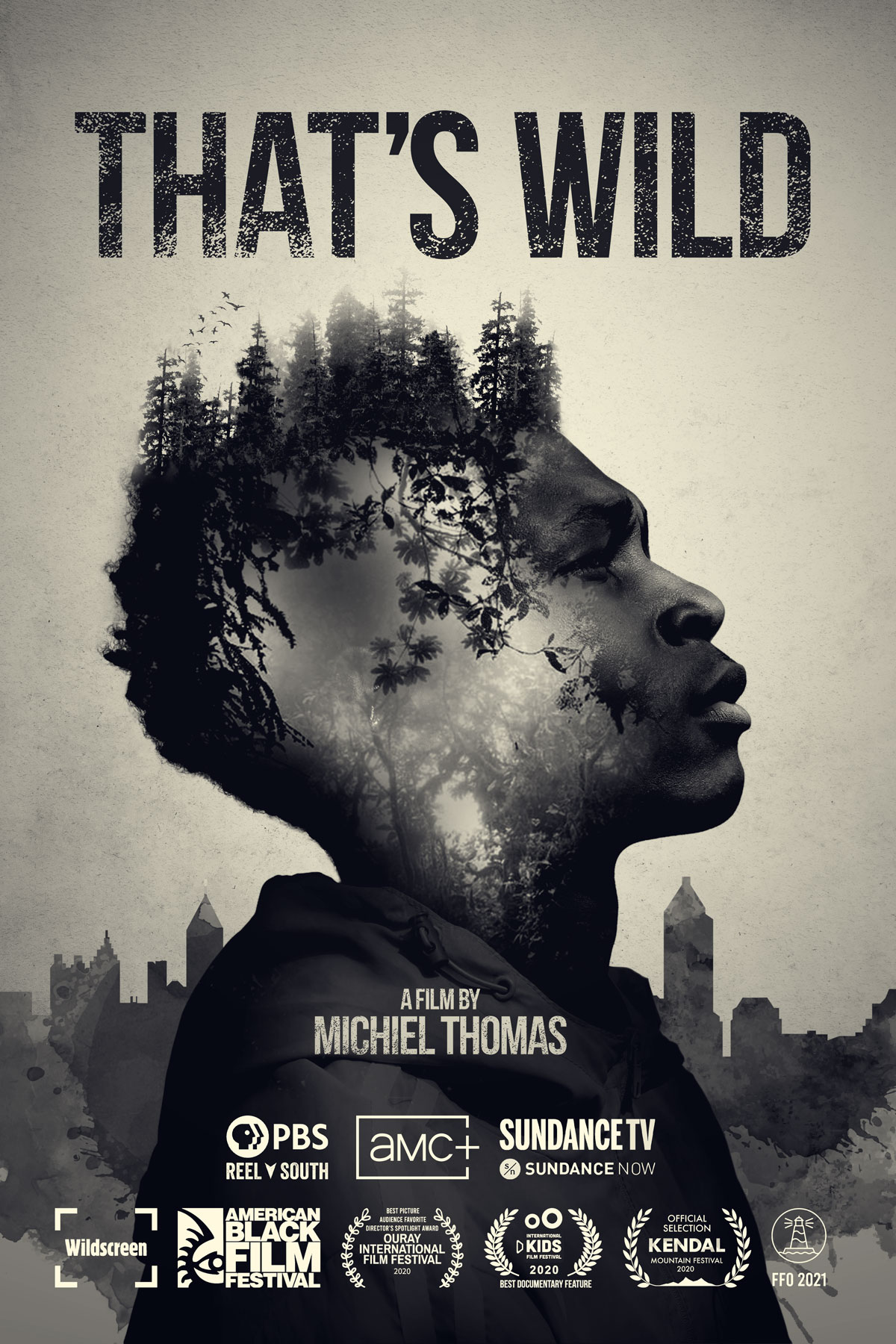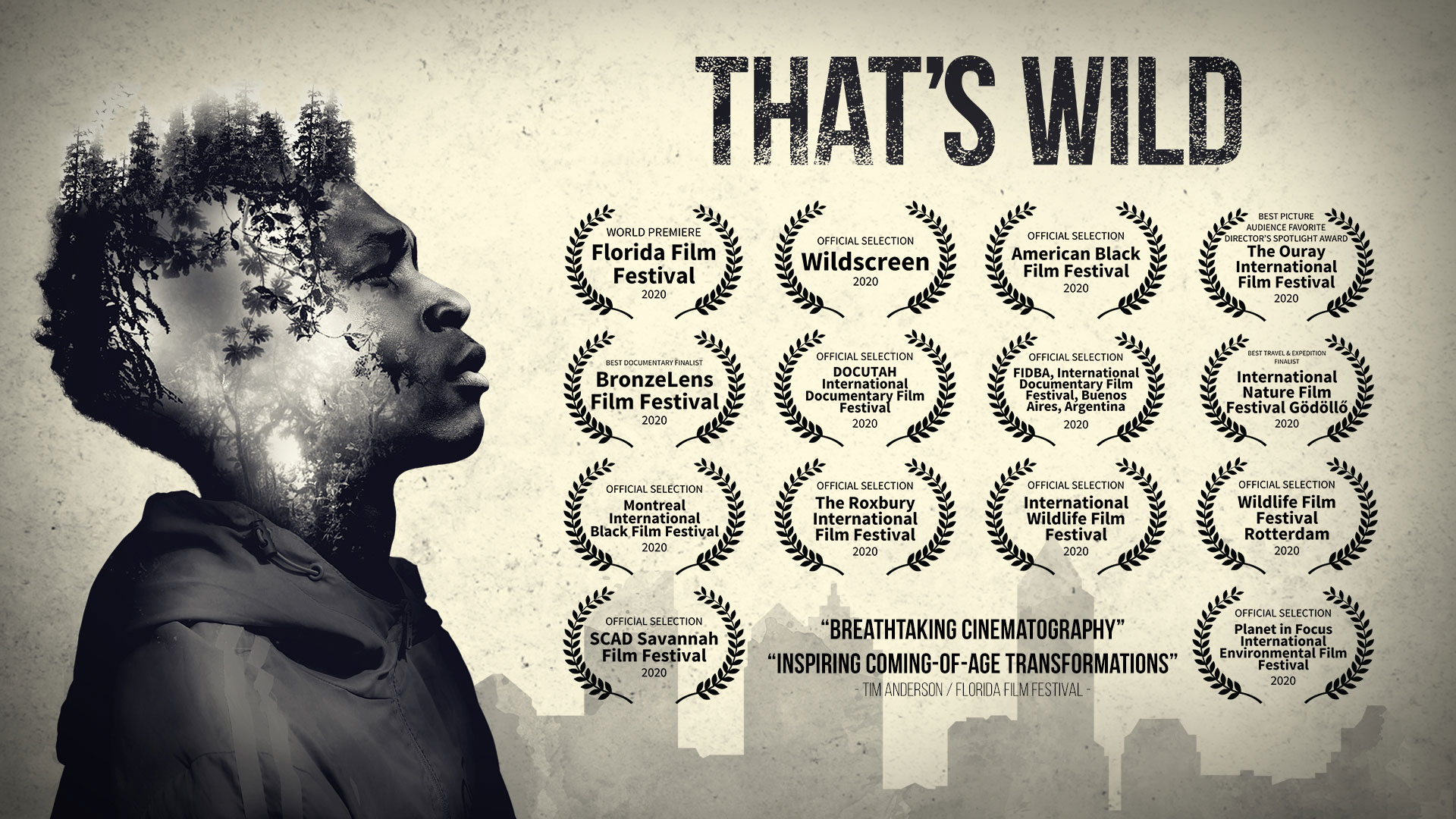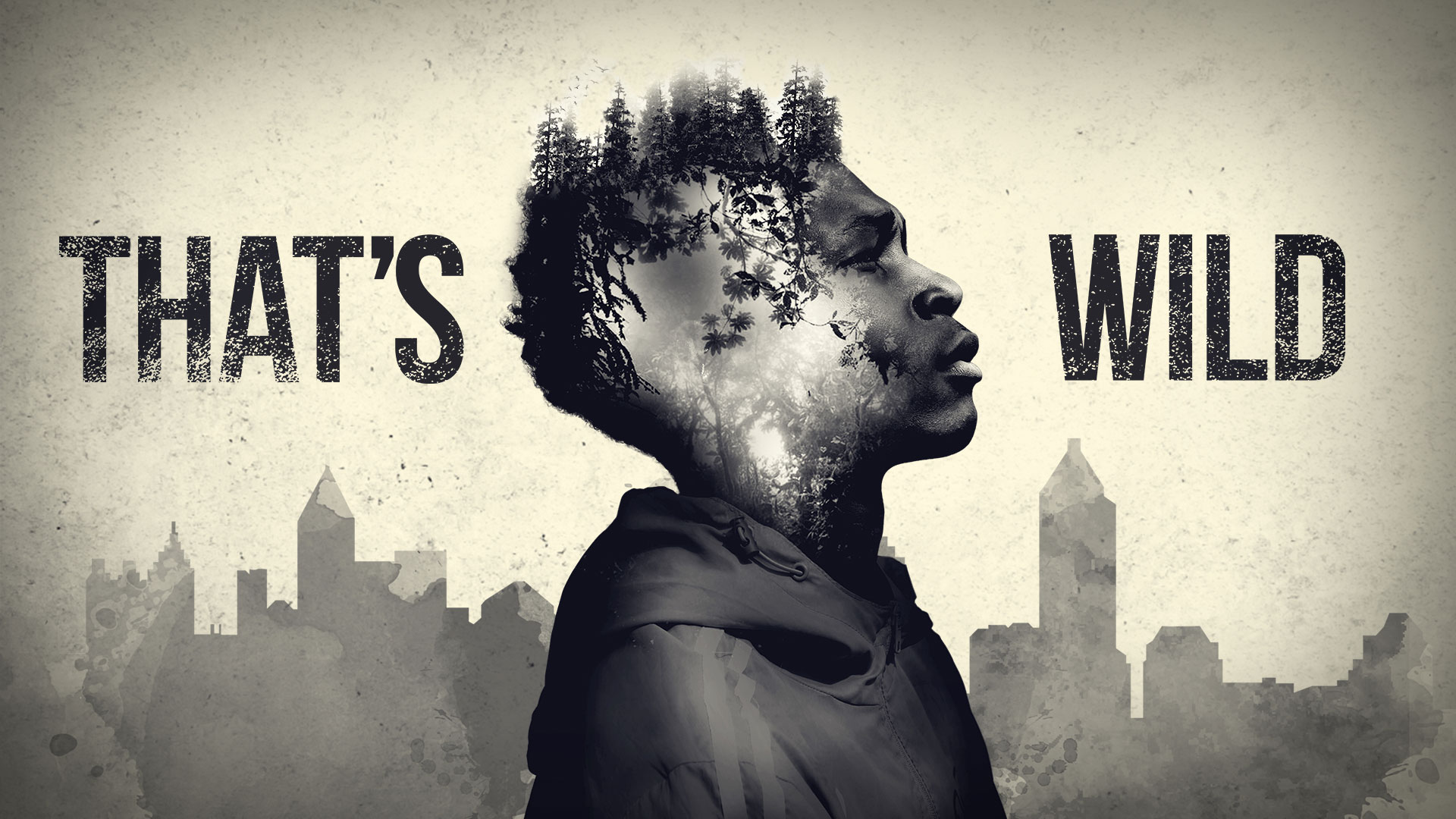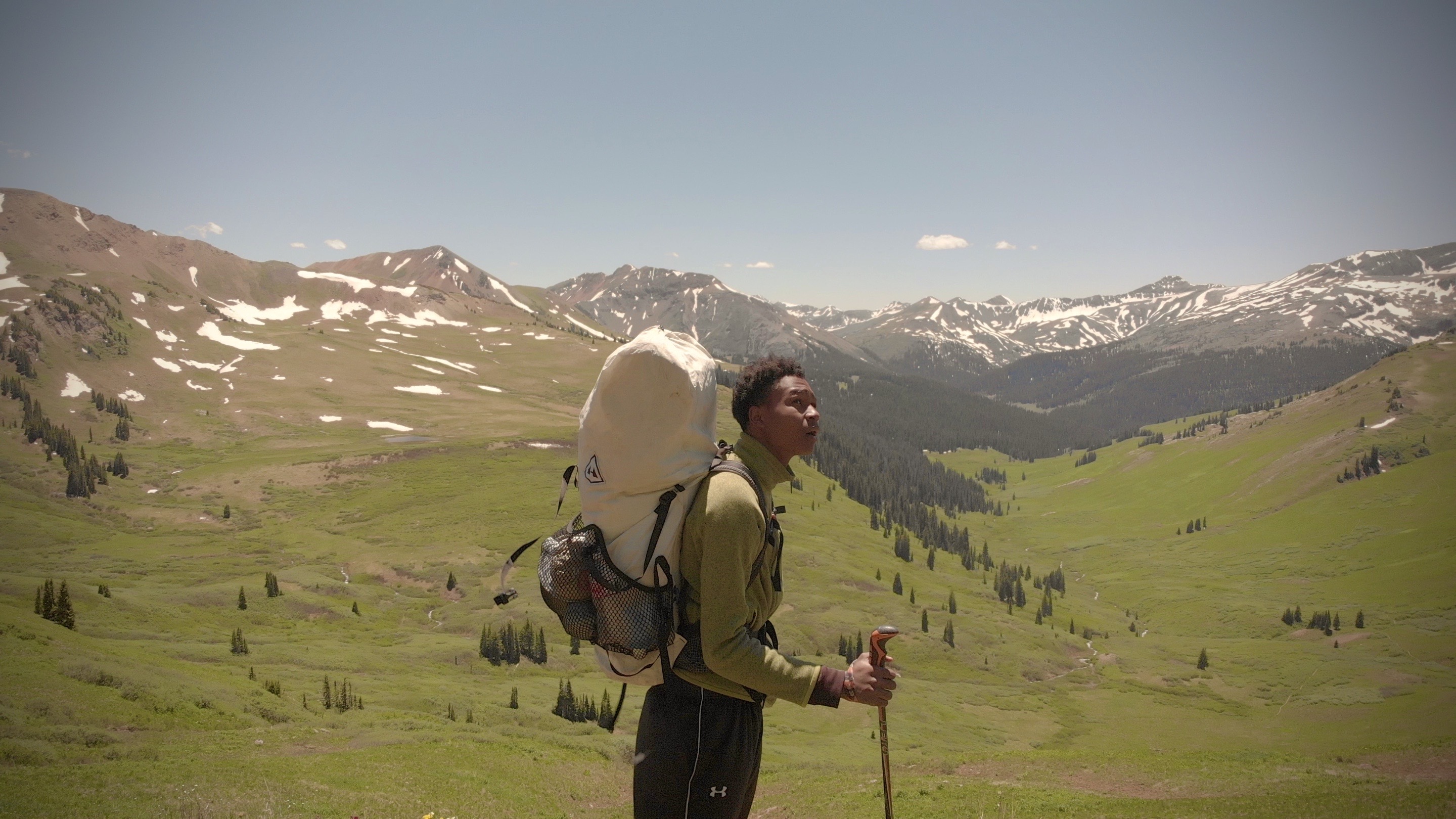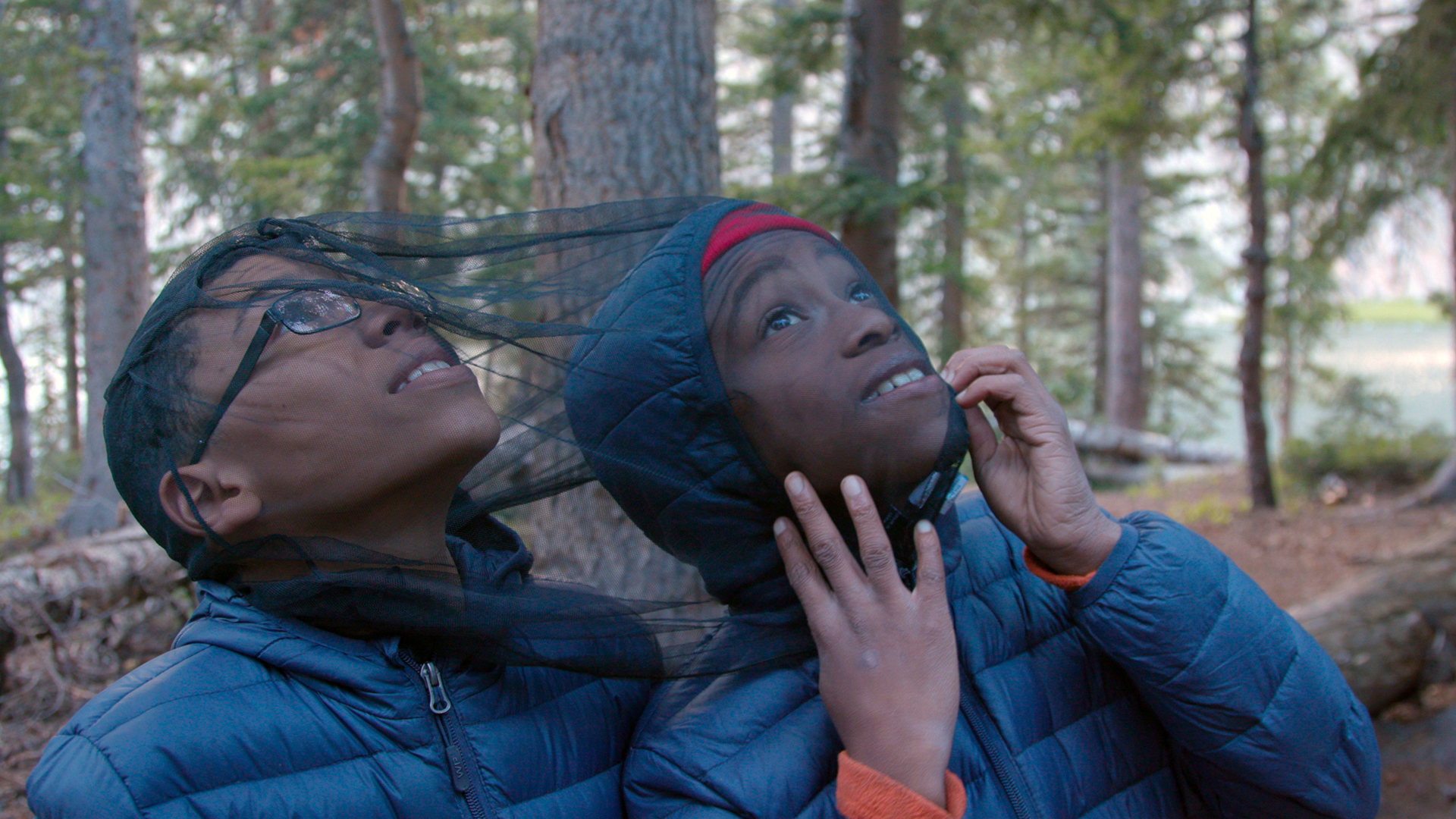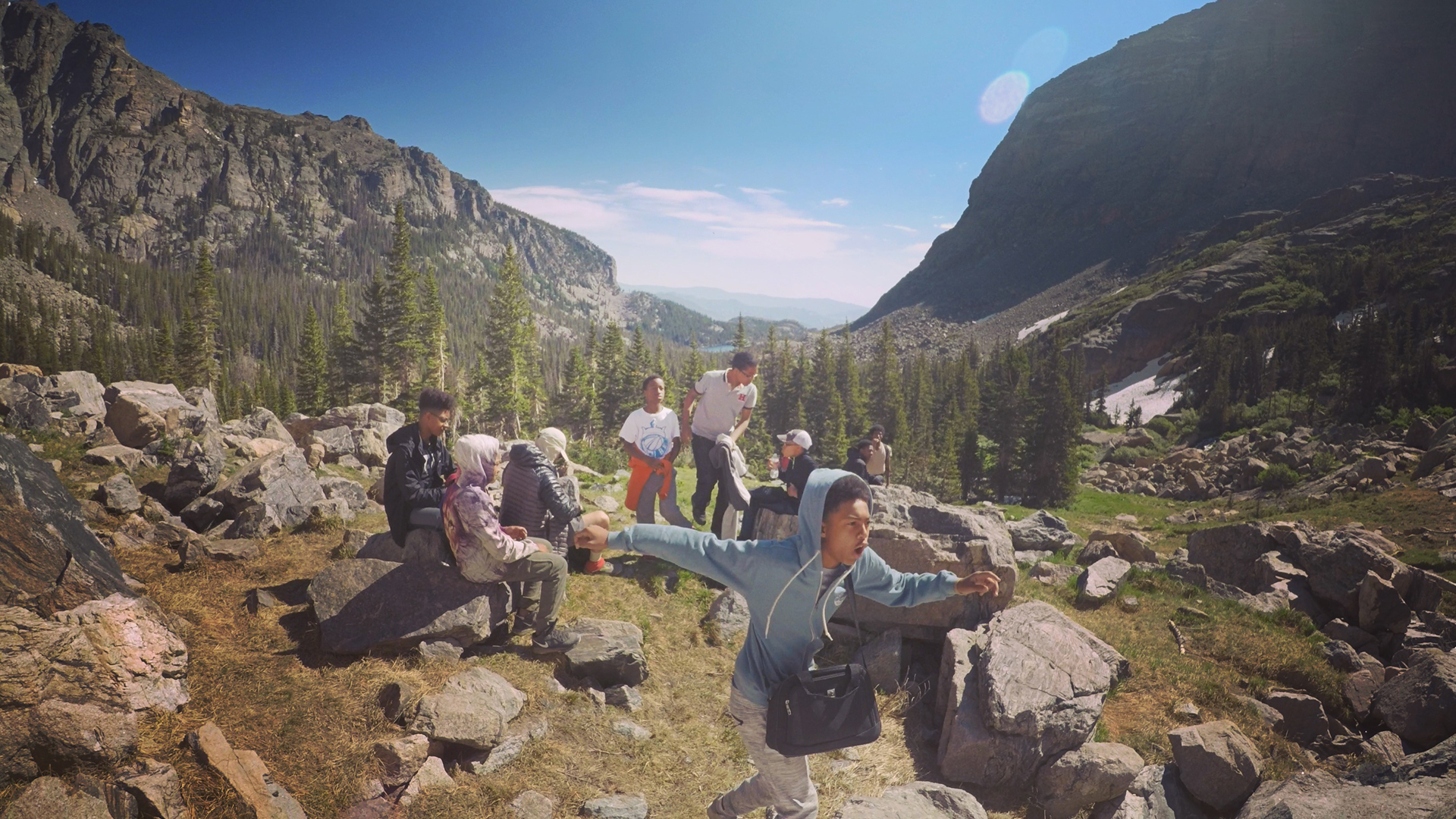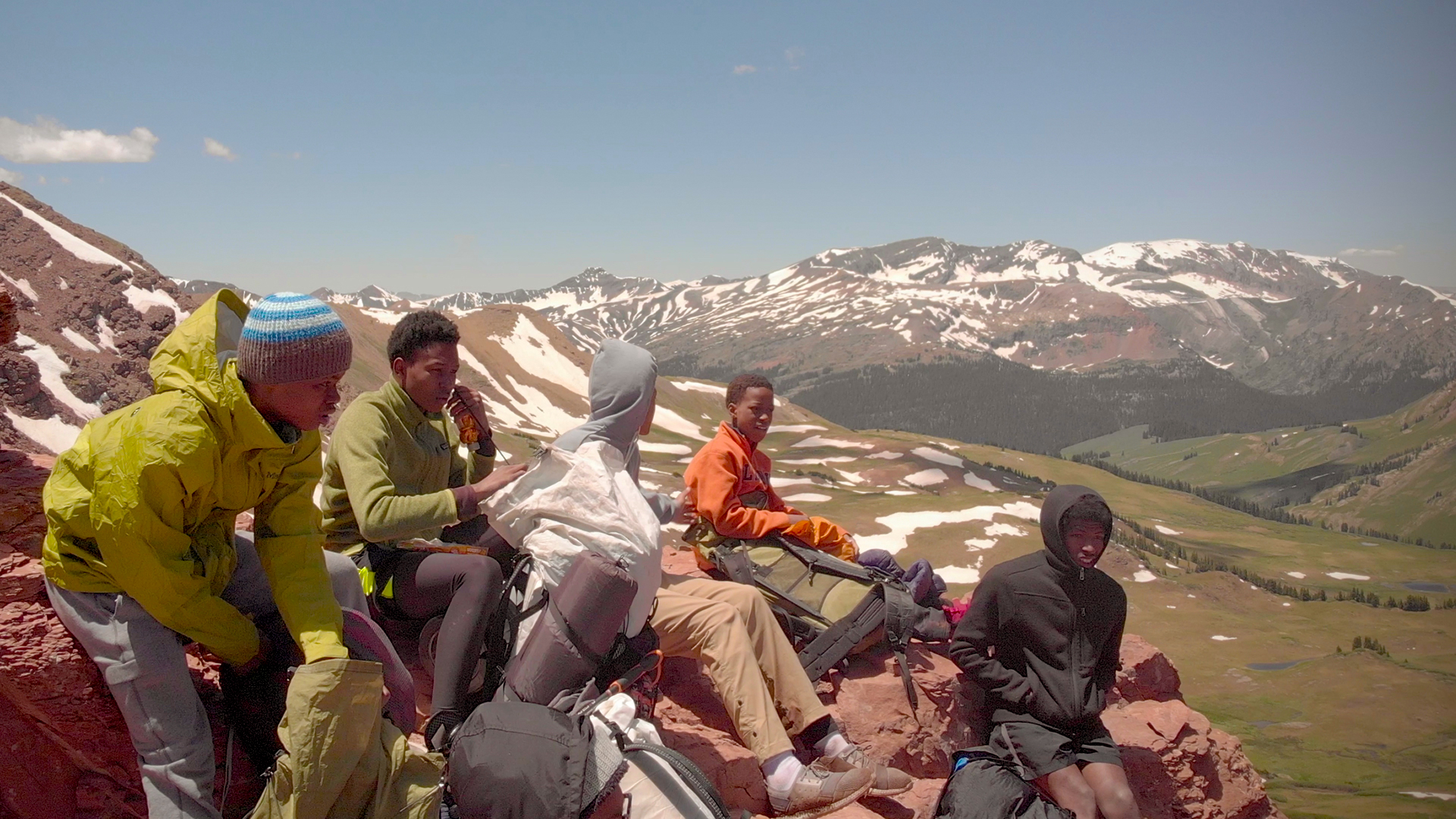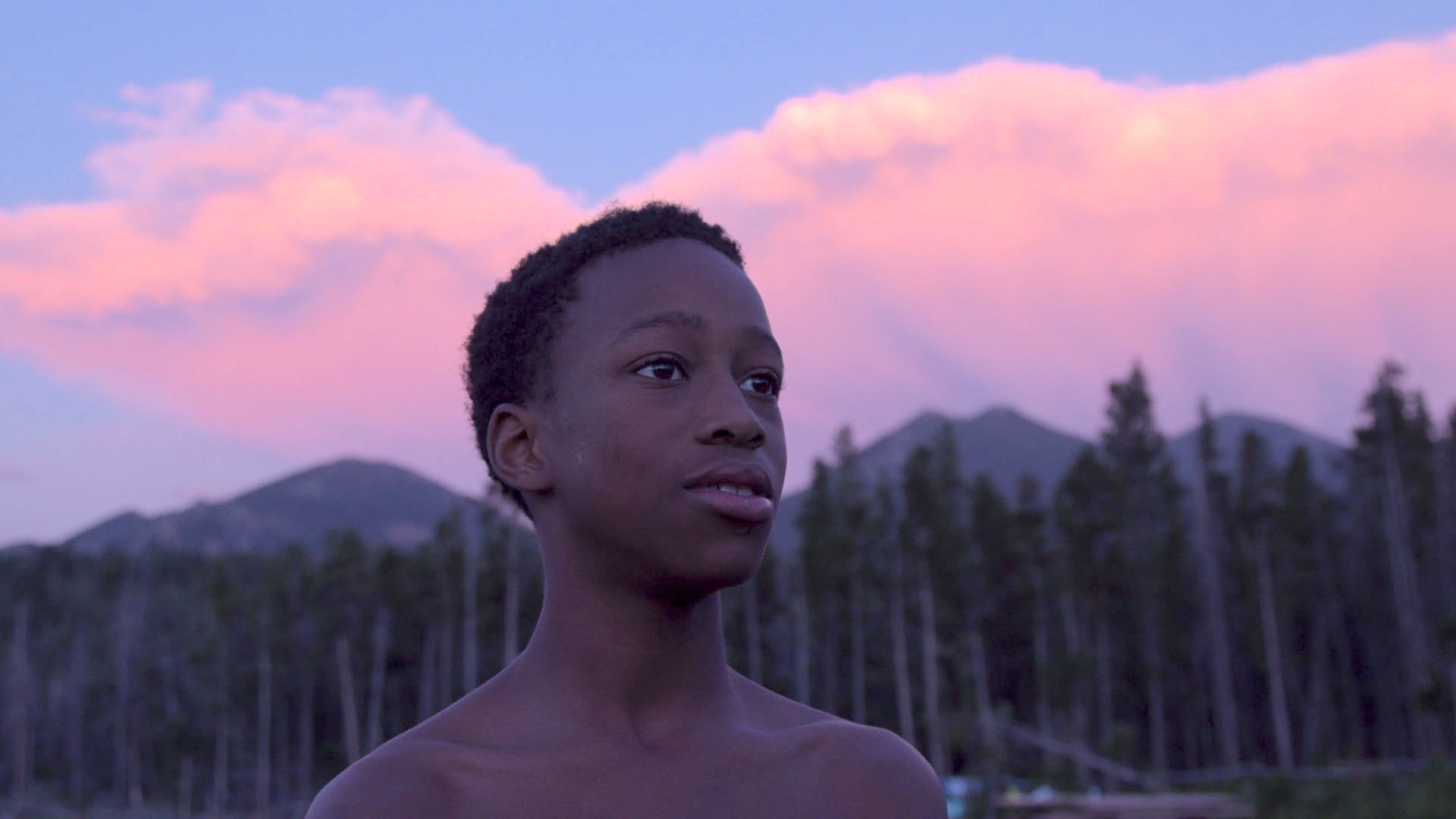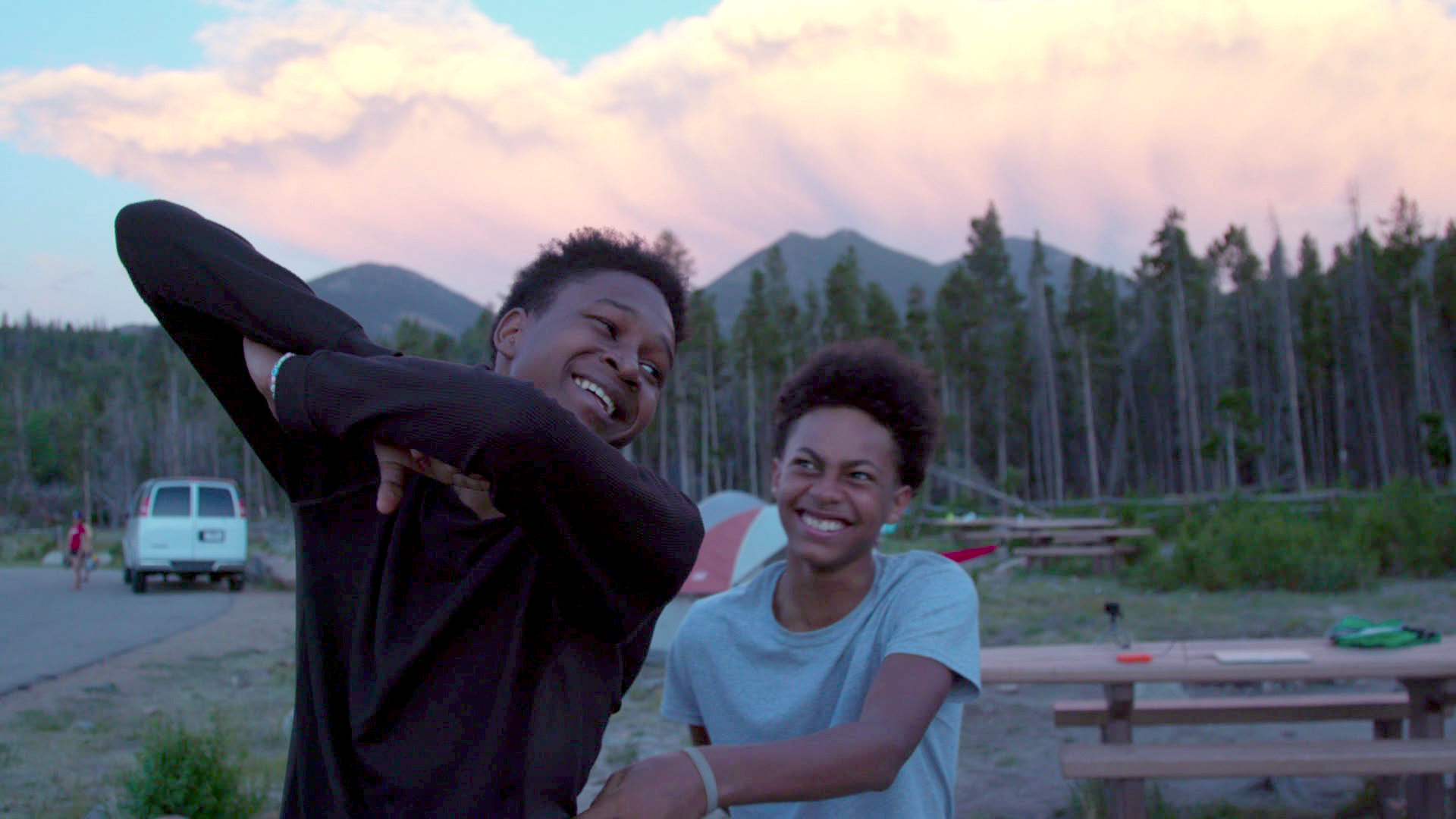
Even a COVID-interrupted Festival Run Couldn’t Stop That’s Wild From Getting Out There, On Screen and Off
February 4, 2022
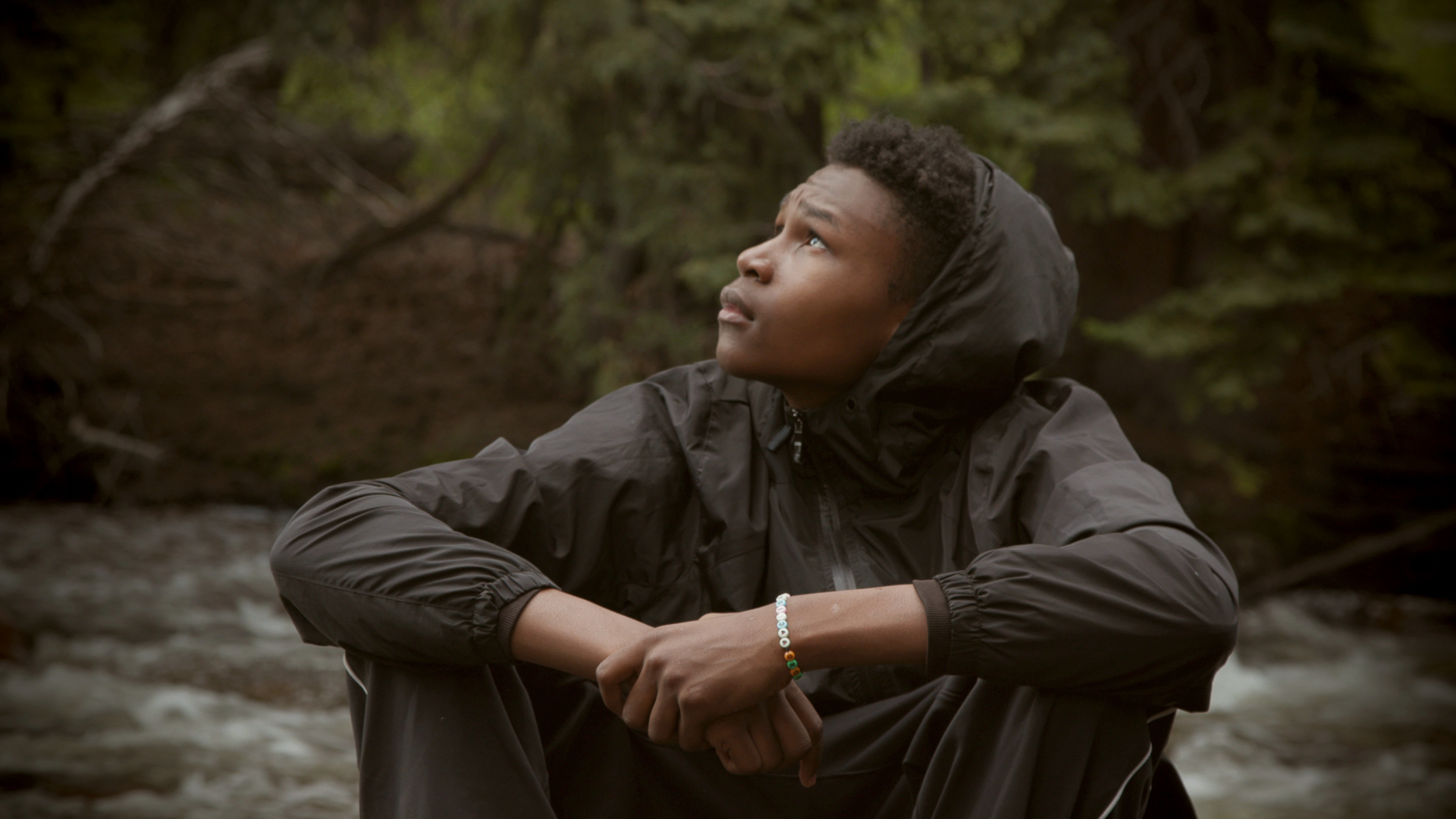
Michiel Thomas is the director and producer of That’s Wild.
After my first feature documentary Game Face, I struggled to find a project that I was equally excited about. In late 2017, my close friend Michael Franklin, who would become a co-producer on That’s Wild, asked me what my passions were. The two passions I felt most strongly about—although they seemed to be diametrically opposed to one another—were going into nature and telling inner-city stories. Michael suggested, “Why not tell stories of people living in the inner-city who are introduced to the outdoors?”
With this initial “aha moment,” I began researching—and learned that the average American spends 93% of their time inside. Over time, such a lack of exposure to the outdoors results in a wide range of mental and physical problems. Moreover, as the U.S. becomes more diverse, some demographic and socioeconomic groups are still underrepresented in outdoor recreation and education. That’s when I decided to make a bold statement that would to inspire a new generation of all races and ethnicities to travel out into the natural world in search of adventure and to discover the mental and physical benefits the outdoors has the offer.
I was pleasantly surprised to find multiple organizations in the major cities in the U.S. dedicated to taking inner-city youth-at-risk on outdoor trips. However, I was cautious because I didn’t just want to make a promo video; I was looking for a compelling story, with interesting characters, an arc, challenges, etc. I spoke with over a dozen organizations and attended multiple camps in San Diego, Houston, and San Antonio. But it wasn’t until I met the people from Wilderness Works that I knew: this is it! There was an instant connection with the group, the kids were excited, some of them even sharing interesting intimate backstories, and from the get-go the leaders from the organization were very welcoming and gave me carte blanche. When they announced that the Colorado Wilderness was going to be the destination of their summer trip, it felt like the ideal setting and a confirmation that this was the group to follow.
Festival Premiere
Once we had picture-lock in October 2019 and started submitting to film festivals, I also began reaching out to sales agents. I didn’t feel confident sending out earlier cuts of the film, because lots of the decisions regarding storytelling structure were made towards the end.
The film premiered at the Florida Film Festival 2020 in Orlando, Florida. Our ambition was to premiere That’s Wild at SXSW or the Atlanta Film Festival. Both rejected the film. I was mostly disappointed by the rejection from ATL, because it could’ve been a perfect opportunity to show the film to a home crowd: the organization, the kids, and their families all reside in Atlanta. I felt bummed, but not discouraged, because Game Face also got a lot of rejections at first and started off small, but it grew quickly along the ride.
We were not only aiming for mainstream film festivals, but also for specific themed festivals targeting topics such as adventure & nature, black voices, youth and kids’ voices, and documentary festivals. Eventually, we thought the Florida Film Festival was a great starting point, especially because the premiere (April 2020) was followed quickly by a handful of other festivals that could help create buzz in a short amount of time.
The goal was to get as many positive reviews and media attention as possible that would spark the interest of other programmers and distributors.
The original premiere date was late April 2020 at the Florida Film Festival. But then COVID-19 happened… the Florida Film Festival got postponed, and the following scheduled film festivals decided to either cancel, postpone, or go virtual. Initially, we passed on selections for virtual festivals because at that time we did not yet know the impact playing at a virtual festival would have on distribution. Eventually the Florida Film Festival decided to hold a hybrid festival in August 2020. They had taken multiple safety precautions to organize physical screenings in the midst of a pandemic.
After deliberating whether it would be safe and ethical to participate, I did decide to go, because I wanted the cast to experience a premiere and I also wanted to support proactive efforts to organize cultural events in safe settings. Unfortunately, the parents of Ahmani and Nicholas wouldn’t let them travel to Orlando, which was understandable. In the end, only Clifford and I were able to make the premiere.
The Florida Film Festival did an excellent job hosting and organizing in a safe way. It was strange to show the film to only 50 people in a 200-seat theater, but I just felt so grateful for the experience to show the film to an audience in these unprecedented times. The film was well received, the audience stuck around for the Q&A, and eventually a journalist wrote a positive review on a local blog. From a business perspective, this was far from an ideal start, but as a filmmaker, I was just happy to experience an audience responding to the film and to share that weekend with Cliff.
Prior to the premiere I reached out to local media and outdoor groups, outdoor/nature outlets such as Outside, and African American outlets. Initially, the Black News Channel was going to send out a crew to cover the premiere, but due to COVID-19, they ended up not doing so. I’m originally from Belgium, and a local Belgian TV station did air a news report. I recorded the answers to their questions on camera, and sent them the footage, along with trailer and clips.
The festival assigned a “Florida Festival Street Team,” which consisted of two film school interns, who developed an outreach plan as part of their school assignment. On paper they did a great job, and we had open communication, but due to the pandemic it’s hard to say how much impact their work really had. After the premiere, I considered hiring a publicist, but eventually decided not to because there were no physical screenings lined up and the film wasn’t being screened at big prestigious film festivals, so I decided to just save the money.
After the premiere, Producer Michael Franklin did arrange an interview with blackfilm.com and we had several write-ups on blogs through festival media outreach, but we never received reviews on mainstream platforms, such as THR or Variety, that could’ve pushed distribution. But I can’t be too upset about that because I was being cheap on PR and tried to do all outreach myself.
Every time the film was selected for a festival, I informed the sales agent (Mat Levy of Passion River—see below in the Digital Distribution section) and other film festivals whose selection status was still pending. Despite missing out on big mainstream festivals, I was pleased to see the doc was being selected worldwide (on 5 different continents) for independent film & documentary, nature & adventure, youth & kids, and Black film festivals. As a White filmmaker telling the story of African-American inner-city teenagers, I was a bit anxious about how Black film festivals would respond to the film, but I was relieved and happy that the film was not only being programmed, but also well received. Because there was interest from these different fields, even though it was on a small scale, I remained positive regarding our chances to find distribution.
Event / Hybrid Theatrical
Film Festival revenue was a day vs. night experience compared to Game Face. While I made about $10K in festival screening fees and prizes for Game Face, I spent about $2,500 in festival submissions and $1,000 for festival travel for That’s Wild. The first year of the pandemic was as financially challenging for film festivals as it was for filmmakers. But since the summer of 2021, festivals have been much more willing to offer screening fees.
Digital Distribution
In December 2019, I received a bad VOD offer, which I’m extremely happy that I passed on (that story is described below in final takeaways).
In April 2020, I joined forces with Passion River Films, who I already had an established relationship with. Mat Levy, PRF Head of Acquisitions and Sales, represented Game Face on the educational circuit. They have continued to handle all distribution licensing and sales activities even after the Netflix deal expired in 2019. Collective Eye Films also wanted to represent That’s Wild. Their team was wonderful, and they offered a truly fair proposal, but I chose to partner with Passion River Films because of 1) our history; and 2) Collective Eye Films was limited to educational distribution only, while Passion River Films covered educational and beyond. Also, if I had chosen Collective Eye for educational distribution and had Passion River only handle other sales, that might have given Passion River the impression that I had did not trust them completely. I wanted to send a message that I was 100% on board with them, which I believe would increase their stakes and motivate them devote the maximum effort to try to sell the film in different fields.
In October 2020, exactly one year later after completion of the film, we received an offer from PBS for their docuseries Reel South Season 6. Terms: Low 5-figure MG (minimum guarantee) ; exclusive U.S. public television rights (including linear live streaming) for 3 years; non-exclusive digital streaming rights for a minimum of 90 days. The agreement was signed in November 2020.
We waited one month to sign the PBS/Reel South offer, because around the same time we also received other offers from an OTT video streaming platform and a digital ad-supported television network. That platform asked to stop all other negotiations, including with PBS, and promised to send an offer, but despite multiple attempts from the sales agent, we never heard from them again. The former platform did make a specific offer, which the sales agent was able to crank up a bit and even convinced them to work around the terms of the PBS offer. There was a verbal agreement, but this platform was yet to launch and had to prioritize the logistics of their first programming slate, which ended up postponing our contract negotiations. 6 months later we still hadn’t received an official contract.
In January 2021 we received a very small 2-year non-exclusive 4-figure SVOD offer, which I passed on because I didn’t want to commit to a small deal for very little money that could interfere with a potential larger exclusive deal.
AMC Networks expressed interest in February 2021, made an offer in March 2021, which was solidified late April 2021. They offered a mid 5-figure MG with a term of 1 year for basic cable via “authenticated” platforms on the AMC Networks’ basic cable networks; and the right for AMC Networks and any of their affiliates to exhibit the series by means of free-video-on-demand (FVOD) and subscription-video-on-demand (SVOD).
AMC was always aware of the PBS deal and agreed to carve them out in their terms. The AMC Networks deal, however, did interfere with the terms of our previously signed agreement with PBS. Luckily, the Reel South team was very empathic and gave us their blessing to pursue the deal with AMC. From July 2021 until June 2022, the film aired on Sundance TV and will be available on AMC+ and Sundance NOW.
One small note: Mat Levy left Passion River right after the AMC deal happened. Josh Levin is the new sales agent now.
Organizational Partnerships
In terms of Organization Partnerships, partners and sponsors of Wilderness Works pitched in some financial support, such as Chad Harlan from Julie’s Dream and the Associated Credit Union.
Foundational support
The non-profit California Institute for Contemporary Arts was the main financial contributor for Game Face (they granted us more than $50K). So, of course, I reached out to them first. Over a two-year period, they granted $22.5K for That’s Wild. Unfortunately, they ran out of funds in 2019 and now no longer exist. I also submitted a grant to Mountainfilm Commitment Grant, but I wasn’t approved. I didn’t apply to any other grant organizations.
Crowdfunding for Distribution
During post-production, I launched a crowdfunding campaign to help cover the costly post-production expenses. The flexible goal was $30K, but I only raised $3.3K. (The crowdfunding campaign for Game Face also resulted in an underwhelming revenue of $875 out of the $20K we aimed for). Both films had inspiring messages “to make the world a better place,” so I was always optimistic that I would raise money, but it’s fair to say that my crowdfunding experiences have been epic fails when it came to the amount of money they raised. However, during the campaign for Game Face, I did meet my cinematographer Brandon Musselman and producer/co-editor Yuhei Ogawa, who both offered free services, which ended up saving the production a lot of money. It also resulted in long-lasting friendships with Yuhei, his family, and Brandon. For That’s Wild, the campaign reached a friend on social media, whose brother worked for a multinational sports company. The message of the film aligned with the company’s vision to encourage young people to be active outdoors, so he was able to give me a grant of $20K that almost covered all post-production costs. So, you never know! To have the production be almost completely paid off prior to the premiere was a huge relief!
Speaking Engagements and Fees
For Game Face, the talent and I had a nice run showing the film and speaking on campuses. I hope, once schools open up again that we can do the same with That’s Wild. Speaking fees are flexible and depend on travel, time, talent and/or filmmaker, school/organization’s budget, etc., so it’s hard to put a dollar figure on it.
Other Deliverables
AMC Networks required me to officially copyright the film, so I started an official Copyright claim. They also required me to get E&O insurance, which I didn’t have up until that point. E&O insurance was included in the PBS deal, but it only covers PBS territories. Luckily, I was able to get a cheaper insurance rate through Passion River Films. Both AMC Networks and PBS asked to submit Music Cue Sheets. PBS also asked for a breakdown of all received funds.
Revenue
The production cost was in the mid-five-figures, and so was the funding. 25% was spent on production equipment, 20% on production travel, 50% on post-production and 5% on film festival and administration costs. The gap between expenses and funding was only a few thousand dollars prior to distribution, although I did not pay myself a wage or flat fee during production. I do own all rights, so besides the sales agent’s cut, all revenue goes to my production company.
Takeaways
From my initial idea in 2017 to distribution in 2021, it feels like a looong road… but overall, I’m very happy with the steps that I have taken. As an experienced video journalist and cameraman, I had the advantage to develop, produce, shoot, and start editing the project myself with a very small budget.
But there’s only so much you can do yourself. Like Game Face, I’ve been very blessed to have met a lot of great and talented people along the way. There was a point where I had cut the first version of the film myself but there were so many holes in the edited storyline that I didn’t know how to fit them. At that time, my friend and former colleague Mat Perez-Mora worked for the production company Timber + Frame, which specializes in content for nature and conservation awareness. I hired him as a producer and he build a great team around me (editor, colorist, and sound mixer) to fix the narrative and complete post in time. I also enjoyed collaborating with multi platinum producer/songwriter Charles “Chizzy” Stephens III. Because many editorial decisions were made in the final weeks, Chizzy did an incredible job knocking out a variety of tracks before the tight deadline. One week prior to picture lock, the film was reviewed for some final feedback by a handful of people who are active in the movie industry, including David Weissman, my mentor and Emmy Award-nominated filmmaker, writer and film critic Greet Ramaekers, actor/producer Michael Franklin, and songwriter Desmond Simpson, who also came up with the titles of Game Face and That’s Wild. So, what started as a lone journey turned out to be an amazing group effort!
To anyone wanting to make a movie in a setting without power outlets: I wish I would’ve taken more camera and drone batteries on the trip! With only 3 batteries for each device, I was limited to capture many moments on the trail. Luckily, it worked out, but some increased flexibility would have been nice.
Perhaps I would have hired a PR person, to get more exposure because the virtual film festival screenings received very little media attention.
I also wish we had more time and a better balance scheduling post-production prior to the SXSW and Atlanta Film Festival submission deadlines. Because of that the composer had very little time to compose. I could have also used more time to ask for feedback from my peers.
I would also say that patience is a virtue... I remember when I reached out to different sales agents, I received my first offer 2 months later (December 2019) from a Video on Demand company. But the offer sucked: worldwide, all rights, 15-year term (!!!), revenue share deal of 30% and I had to cover an estimated cost of $7500 in delivery fees. Their strategy was to release the film ASAP to VOD.
I didn’t say “no,” but I asked to wait until the premiere. As bad as their offer may sounded, when SXSW and the Atlanta Film Festival passed on the film, and COVID-19 was turning the film industry and the world upside down, and no other offers came in, I did reconsider and entertain the offer. But thank God I didn’t panic or rush to a decision. If I had agreed to this proposal, the deals with PBS and AMC Networks most likely would not have happened, especially because of their proposed early VOD release. It would’ve also limited educational distribution opportunities. So, I am super happy I didn’t jump the gun and that I waited a few months to see how the film festival circuit and buyer’s market was going to adapt to COVID.
Similarly, after the PBS deal, when we didn’t hear updates from the two other streaming offers, a very small non-exclusive offer came in. If I would have agreed to that, the AMC Networks deal that came in a few weeks later would not have been possible. So, patience truly is a virtue…
In the U.S., funding opportunities mostly come from the private sector (businesses, organizations, or foundations), while In Belgium and Europe, most grants for audiovisual productions come from the government. As a native Belgian, one might think it would be easier for me to request sponsorship from Belgium and Europe than from U.S. entities, but I’ve experienced the opposite. My applications were declined many times, followed by with a recurring feedback message that my project(s) sound “too American.” In this case, That’s Wild was indeed filmed entirely in the U.S., but the need to reconnect inner-city youth with the outdoors is a message that goes beyond U.S. borders, resonating in Belgium. I’ve followed many workshops and tutorials on grant writing and proposals, but to this day this is one of the aspects of making a film that is still struggle for me. Moving forward, I would definitely welcome a co-producer to help me with this in the future.
Lastly, making a movie is expensive and complex… but my advice is to look for resources, workshops and Q&As that can help you. I learned so much from all the available resources online such as The Film Collaborative, The D-Word, DOC NYC, IDA, Desktop Documentaries, etc. Through the California Lawyers for the Arts, I found a lawyer who offered free (!) legal services for the complete project. That also saved me a lot of money!
Did I realize my dreams? Yes! Not because the film found distribution, but I was able to finish the film… Lots of people don’t get past an idea, or they get stuck along the process. I’m very proud that I completed the film, no matter what the outcome was ever going to be.
TFC Takeaways
Unfortunately, COVID-19 had a large impact on That’s Wild’s Festival run, which began just as the pandemic was starting. Nevertheless, the film got picked up by both PBS and AMC Networks. The film is also on TVOD platforms and Kanopy, which was undoubtedly handled by Passion River, their distributor. The Film Collaborative knows Michiel to be a talented and hard-working filmmaker. He provides some good filmmaking advice in this case study. We are very impressed by his ability to keep costs down and come close to, if not fully, recouping his entire budget.
